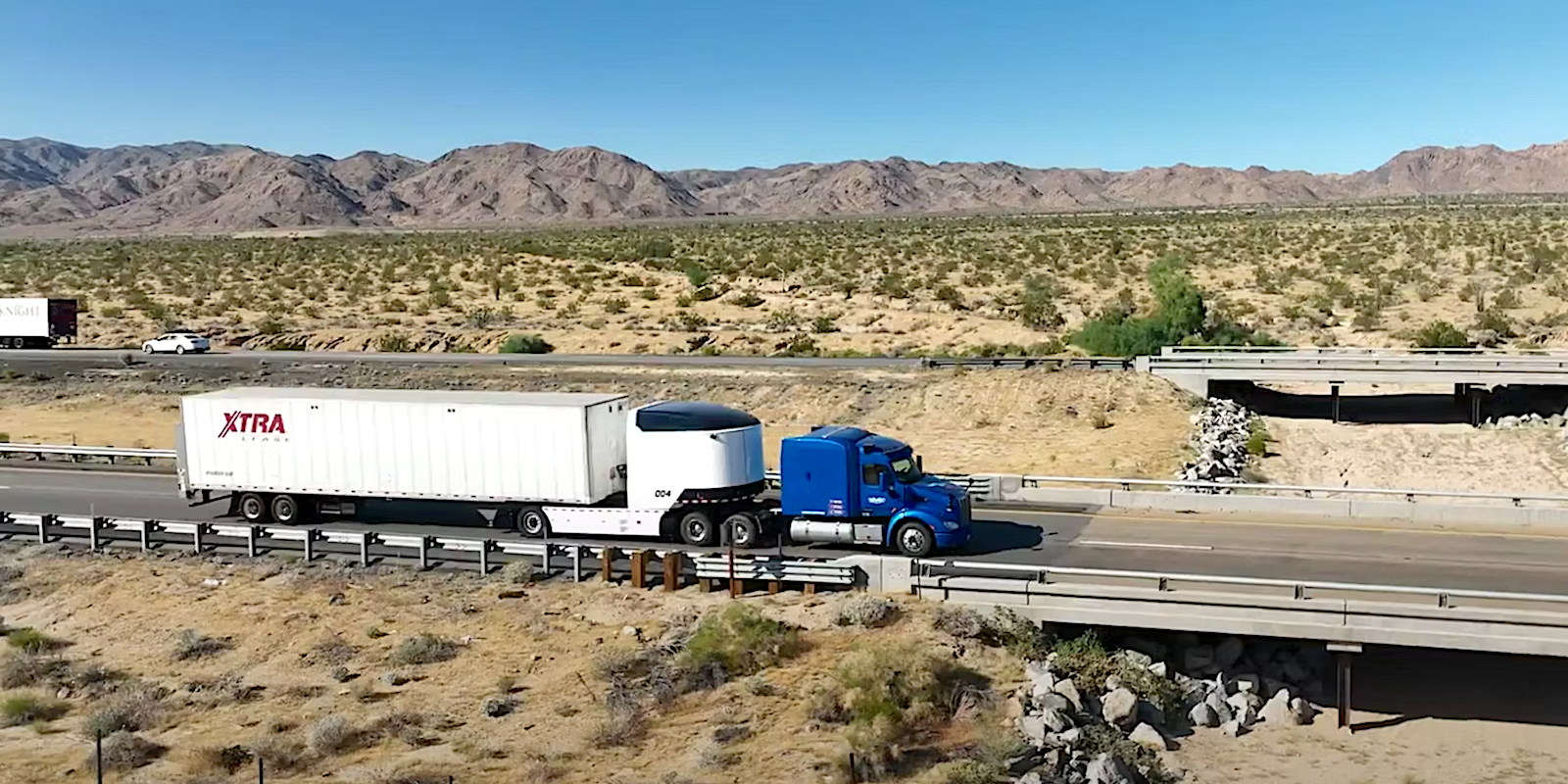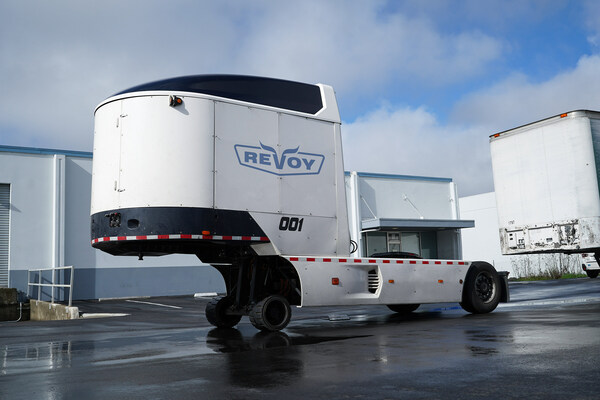
By packing batteries and an electric drive axle into a tandem trailer that fits between a conventional semi truck and trailer, Revoy EV promises to “electrify” trucking and cut a fleet’s fuel bill in half. It sounds amazing – but eleven tons of questions remain.
The Revoy EV concept is deceptively simple. A tractor’s 5th wheel pairs up with the Revoy’s hitch. Then the trailer that the semi is set to haul attaches to the Revoy’s 5th wheel. Some AI embedded in the Revoy’s electronic control units does some number-crunching and the three-part truck, trailer, trailer combo then hauls off down the road, with the Revoy’s high-torque e-axle providing most of the power to accelerate the load and diesel power where it’s most efficient: on the highway.
The best part, according to Revoy? Truckers can add the Revoy EV trailer to their rigs with no up-front costs.
“We offer a really different and much better and easier path for fleets to go electric,” offers Revoy EV’s founder, Ian Rust. “We offer a service, (zero money up front for the unit, then) customers pay us by the mile. It’s really more of a fuel product. We charge them for the diesel we save them, altogether with the residual diesel, and our fees that are all inclusive.”
The Revoy EV has a range of about 250 miles, which comparable to the 2nd generation Volvo VNR Electric and the Freightliner eCascadia models. “On a 250-mile run, a truck getting 7 mpg might burn 35 gallons of diesel, which we’ll say costs $4/gallon or $140,” writes Alex Lockie, from the Commercial Carrier Journal. “The Revoy EV would cut that in half, approximately, and bill the fleet for a cut of the difference.”
Revoy EV hybrid semi trailer

Revoy is launching with two “swap stations” already up and running in Texas and Arkansas, where drivers can pull into the station, be greeted by a Revoy attendant, then swap out their spent battery “in about five minutes or so,” according to the press release. Rust adds that Revoy has stations planned for California and Oregon as well.
Electrek’s Take
Where do we start? On the one hand, the Revoy EV is very much not vaporware. This is a thoroughly conceived, well-engineered, and seemingly well-funded effort to bring someone’s big idea to life. On the other hand, the concept itself seems deeply flawed.
The first major problem with the Revoy EV is its weight. The electrified trailer weighs in at about 22,000 pounds, according to the company – around 2,000 pounds lighter than the previously mentioned Volvo VNR Electric and as much as 6,000 pounds more than a Freightliner eCascadia. National rules say that without a special permit, a semi-truck and the trailer it is hauling can’t collectively weigh more than 80,000 pounds in total. Worse, the Revoy doesn’t fit into any special legal loopholes that can help make that mass go away (because the Revoy isn’t a ZEV, it doesn’t even get the extra 2,000 lb. GVWR allowance a BEV gets). That means adding a Revoy trailer to your rig effectively negates your ability to haul 22,000 lbs. of the stuff that, you know, you’re actually being paid to haul.
Add in the potential safety risks and generically “weird” handling characteristics presented by adding an extra few articulations into the mix and the Revoy starts to look even more like a liability.
Still, the Revoy guys aren’t dumb – and a number of knowledgeable industry people have jumped in to defend Rust’s concept. “In high-value freight at least,” offers Lockie, “the trend has been toward the extreme majority of loads cubing out before they ever weigh out.”
Rust, to his credit, at least acknowledges the problems. “The key is when we encounter those trailers that can’t afford the weight (of the Revoy EV), we wave them on,” he says. “We looked at the data … two thirds of loads can accommodate the extra weight.”
With so many commercial fleets complaining that the 2000 lb. EV adjustment isn’t enough, I (for one) question Rust’s confidence. Still, I’m just one guy – and you, dear readers? You’re smart. Head on down to the comments and let me know what you think of the Revoy EV, and whether or not you think it’ll be a staple of trucking’s future.
FTC: We use income earning auto affiliate links. More.






